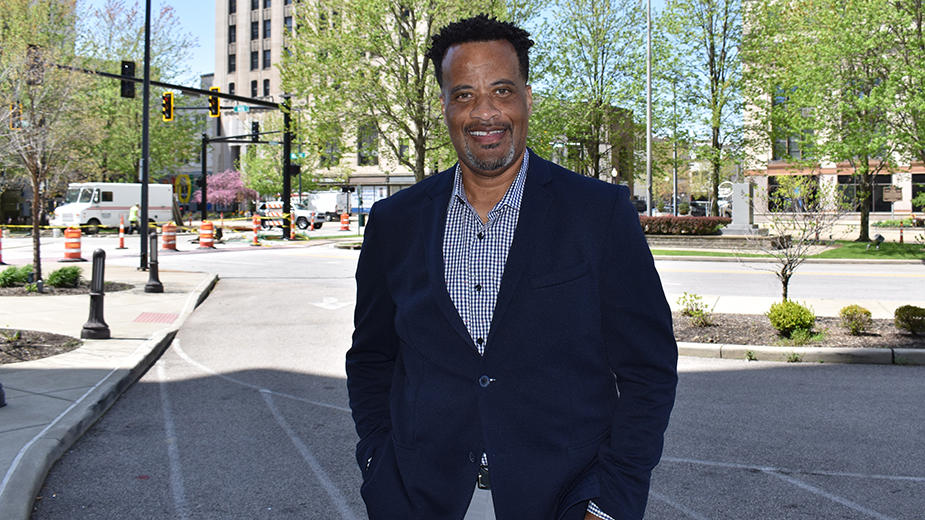YOUNGSTOWN, Ohio – What strikes former Youngstown Mayor Jay Williams most about the changes in the city he once helmed is the transformation of downtown and Youngstown State University. There’s also positive development in city neighborhoods, he says.
Williams, who served as mayor from 2006 to 2011, grew up in the city, visiting the former Strouss’ with his mother as a child and getting chocolate malts.
The changes he sees started with the Youngstown 2010 Plan, which he helped to create.
Williams had a career in banking when he decided to go into public service, first as the Youngstown community development director.
Former Mayor George McKelvey tasked him with leading the 2010 plan, a framework for guiding the city from its post-industrial past to a smaller city. That plan involved the work of McKelvey, City Council and outside consultants with input from residents, businesses and community groups.
“There was a huge concern that this would be seen as a self-defeating sort of slap in the face,” Williams says of the Youngstown 2010 Plan, “that the citizens just spent considerable time and effort and energy, putting their voices to this plan, and then seeing that there was a mayoral election where this plan wasn’t front and center.”
Because McKelvey was term limited, Williams worried about the fate of the plan. He took it to the major declared mayoral candidates, hoping they’d pledge their support.
“And the response was tepid at best,” Williams says. “It was ‘Oh, that’s nice, but that’s not going to be the platform that we adopt.’”
So he decided to run for mayor as an independent. He won and became the city’s first black mayor.
The Youngstown 2010 Plan started to garner attention nationally and abroad and Williams was invited to speak about it in other cities and on national television. The image of Youngstown started to change.
“It became a city that people stopped consistently defining by its failures – the cliche of Youngstown being the poster child of the industrial Rust Belt, the collapse of urban centers, showing the old rusted out steel mills being demolished,” Williams says. “And it started being talked about as a city that was embracing its shrinkage, that was figuring out how to be a smaller, more relevant and resilient city.”
Early in his second term, Williams was tapped by the Obama administration to lead the Office of Recovery for Auto Communities and Workers. He later became assistant secretary of commerce for economic development. Since 2017, he’s served as CEO of the Hartford Foundation for Public Giving.
Pictured at top: Jay Williams became mayor in 2006.
